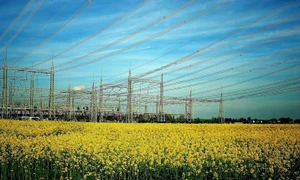
The Legislative Assembly of El Salvador has taken a significant step by approving a law to regulate activities related to the construction and operation of nuclear energy facilities. This new “Nuclear Energy Law” was passed with 57 votes in the 60-seat unicameral congress, largely supported by President Nayib Bukele’s Nuevas Ideas party. The law aims to oversee all activities, facilities, and practices associated with the nuclear fuel lifecycle for generating energy for peaceful purposes, as highlighted by William Soriano, a deputy from the official party.
Despite the law’s passage, it has not been without controversy. Marcela Villatoro, a deputy from the opposition Nationalist Republican Alliance (Arena), acknowledged the importance of supporting energy generation but expressed concerns about the potential risks associated with nuclear energy. She emphasized that there could be catastrophic risks not only to the environment but also to the health of Salvadorans.
Daniel Álvarez, director of Energy, Hydrocarbons, and Mines, provided further insight into the government’s plans on local television. He mentioned that El Salvador aims to have its first research nuclear reactor operational within seven years. During this period, efforts will also focus on training approximately 400 individuals to manage and operate within this sector effectively.
Currently, El Salvador relies heavily on renewable energy sources, with official data indicating that by the end of 2022, 83% of the country’s electricity consumption came from renewable sources. This new law represents a strategic move towards diversifying the nation’s energy portfolio by incorporating nuclear energy as a potential future source.
The introduction of nuclear energy in El Salvador could signify a transformative shift in the country’s energy landscape. However, it also necessitates careful consideration of safety protocols and environmental impacts to mitigate any potential risks associated with nuclear technology. As El Salvador begins down this path, its attempting to balance innovation with safety which will be crucial to ensuring sustainable energy development for the country.























